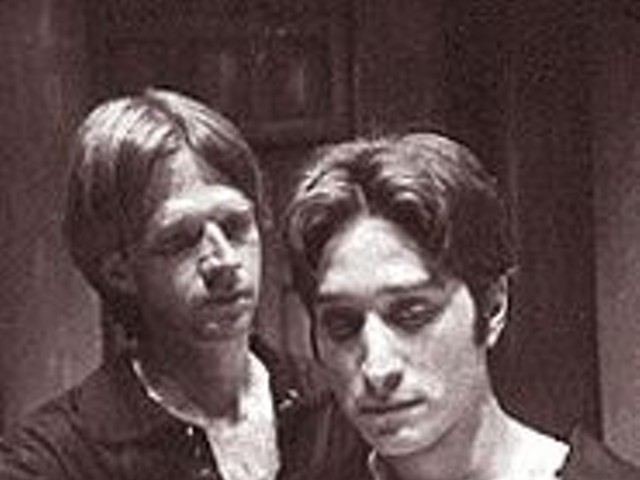Così fan tutte was Mozart's last collaboration with Lorenzo da Ponte, who supplied the libretti for The Marriage of Figaro and Don Giovanni as well. It was an immediate success but fell out of favor, some say, as the dark shadow of Victorianism fell over Europe. Others argue that one of the principal parts, that of Fiordiligi, was unsingable because of its difficulty and demands of vocal range. Many today consider Così fan tutte Mozart's finest opera, and when it receives a production as stimulating and colorful as the one the Union Avenue folks deliver, you have to agree.
The plot is silly, but funny stuff usually is. It concerns two pairs of very young Neapolitan lovers, the males of which, having been bragging on their girls' fidelity, are challenged by an older and perhaps cynical but certainly more worldly fellow to put the young women, who are sisters, to the test. Each agrees to disguise himself as an Albanian and court the other's fiancée. The ladies' maid agrees to help in the bet. The rest must be seen and heard for any credibility, because the opera, well performed, disposes of disbelief through an onslaught of lush music, funny words and opportunities to mug, mime and generally be loopily funny.
The parts of the two young ladies are sung by soprano Mary Wilson as Fiordiligi (who makes the genuinely demanding music seem simple) and mezzo-soprano Deborah Good Stinson as Dorabella. We are accustomed to seeing Stinson in dark or heavy, often contralto, parts. How pleasurable it is to hear her sweet, powerful upper register, especially when so much of her music is made in duets with Wilson. Patrick Hogan is also cast out of type. Generally he sings as a baritone, but he handles the tenor range the role of Guglielmo demands with suave ease. As Ferrando, Keith Boyer sings in a high tenor so rich, gorgeous and pure that it makes the hair on the back of your neck stand straight up.
As Don Alfonso, bass-baritone Robert Reed anchors much of the ensemble singing with clear, pleasurable sound, and big-blue-eyed soprano Ann Hoyt has a hard time not stealing every scene in which she appears, not only because of her melodious soprano voice but because of her brilliant clowning. But all six singers are fine actors, even the most youthful of them, tenor Boyer, who is still an undergraduate and has no business having so excellent a voice (together with technique way beyond his years) and acting abilities, too.
Maestro Schoonover elected to use the original version of the opera and to do it practically uncut, so the audience hears some music that is rarely performed or even recorded. He chose not to use a chorus, and one misses their little military march and their swelling the Act 2 serenade, especially when the march is reprised in the last minutes of the opera.
That Armistead has such good singer/actors to work with takes nothing away from the success of her stage direction, for she had the lot of them (particularly Hoyt) moving fast all evening. Armistead's insight into Mozart's conventions and her cast's abilities have enabled her to create an aura of realism in the midst of the foolery and farce, so the audience comes to care for the young folk and the pain of their education.
Cynda Flores' costumes, Alicia Hatridge's props and Alice Hoagland's wigs are all right on, and whoever designed the set -- Union Avenue Opera Theatre's best to date -- deserves a mention in the program, too. The small orchestra is skilled and tuneful, particularly the brass and woodwinds.
If you were seated house right and up close, you could also admire Jake Brookman's cello and Andrew Tinge's bass viol, which ground the evening's music firmly and melodically.
Così fan tutte continues through July 22.





